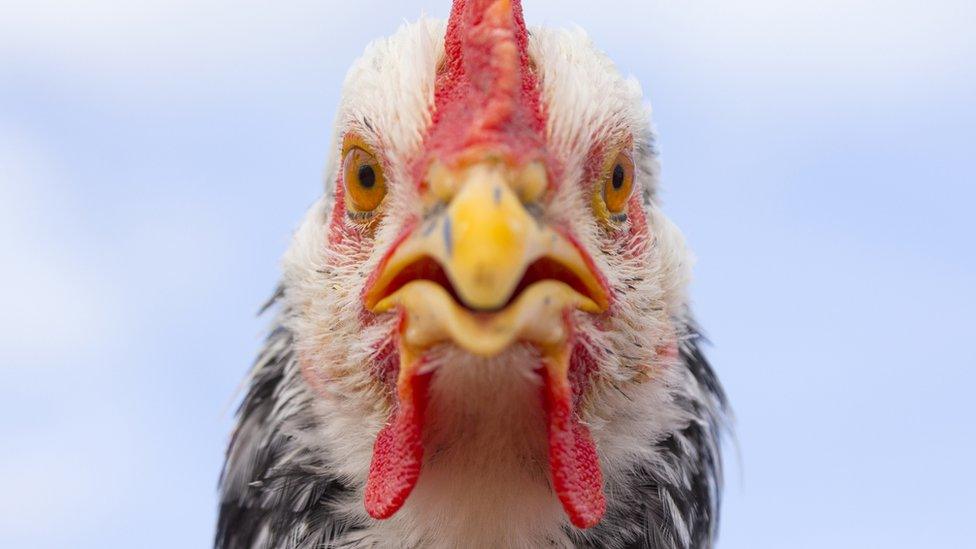Bird flu forces Farne Islands to shut to visitors
- Published
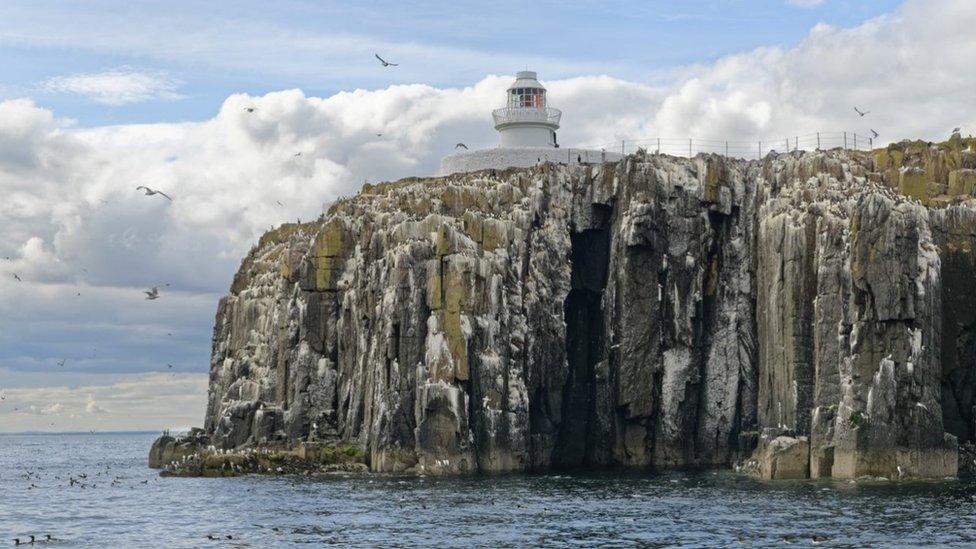
The Farne Islands are home to 200,000 seabirds including guillemots, kittiwakes, razorbills, shags, Arctic terns and puffins
The Farne Islands have been shut to visitors after a bird flu outbreak for a second year at the seabirds' colony.
Last year, 6,000 birds were found dead by rangers at the islands, home to colonies of rare species, including puffins and Arctic tern.
The islands will remain closed to the public until the end of the breeding season at the end of August.
National Trust ranger Harriet Reid said there was a "strong likelihood" last year's outbreak could be repeated.
"Sadly, with confirmed cases, there is a strong likelihood that we will see thousands of birds affected by the virus again this year."
She added birds could be given the "best chance of survival" by restricting access to the islands.
The charity has confirmed three cases of avian flu as more seabirds return for this year's breeding season.
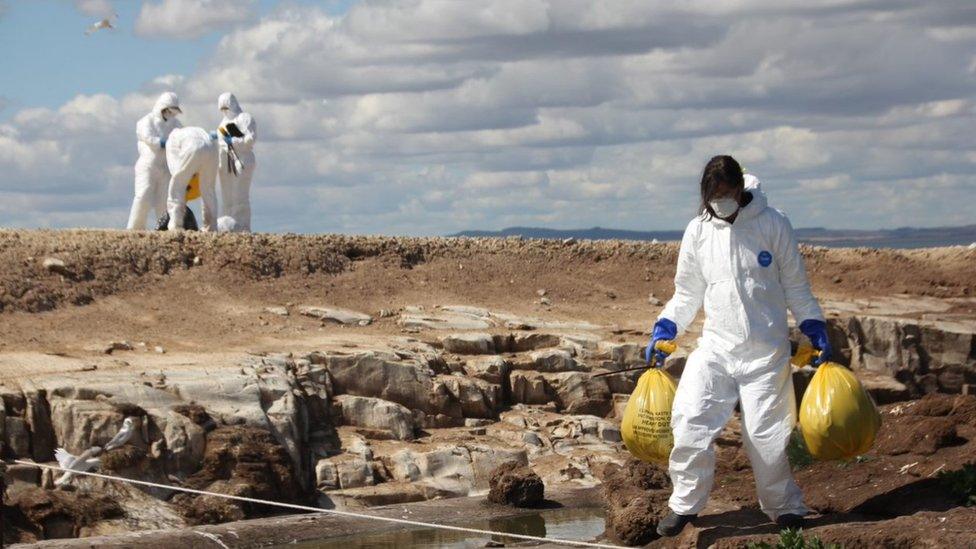
Last summer, teams of rangers who live and work on the islands removed thousands of dead birds
Although visitors will not be able to land on the Islands, local boat firms in Seahouses will continue to operate tours around them.
Rangers will continue to monitor the rare seabirds, which also include kittiwakes and guillemots, to understand how many breeding pairs return and how many chicks fledge.
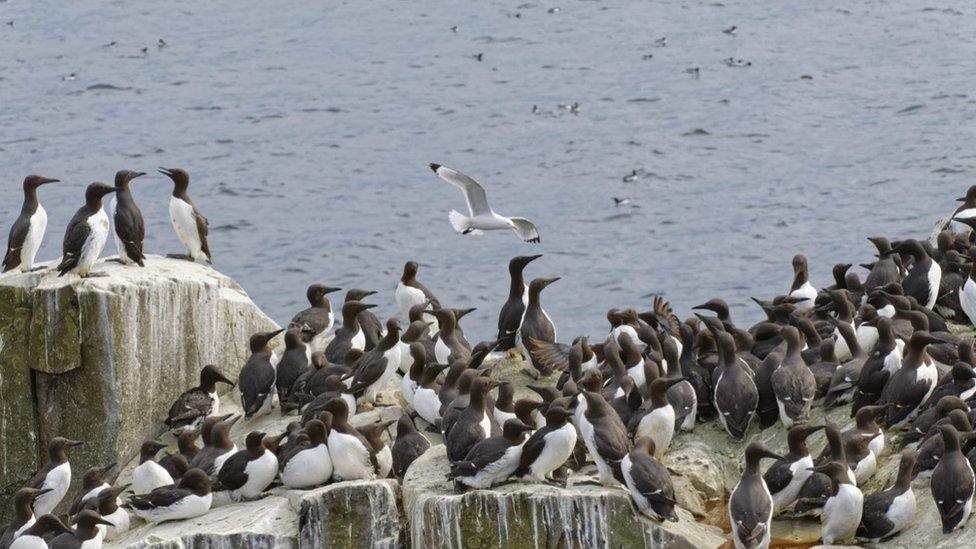
The National Trust, which has cared for the Farne Islands for just under 100 years, says records show there is nothing as potentially devastating to the endangered seabird colonies as bird flu
Last year, the guillemots and kittiwakes were affected the most, with the bodies of 3,542 and 818 dead birds collected respectively.
It was feared the actual number of dead birds could be higher still, as many fell into the sea from the densely packed cliff colonies.

Follow BBC North East & Cumbria on Twitter, external, Facebook, external and Instagram, external. Send your story ideas to northeastandcumbria@bbc.co.uk, external.
Related topics
- Published23 February 2023

- Published18 August 2022
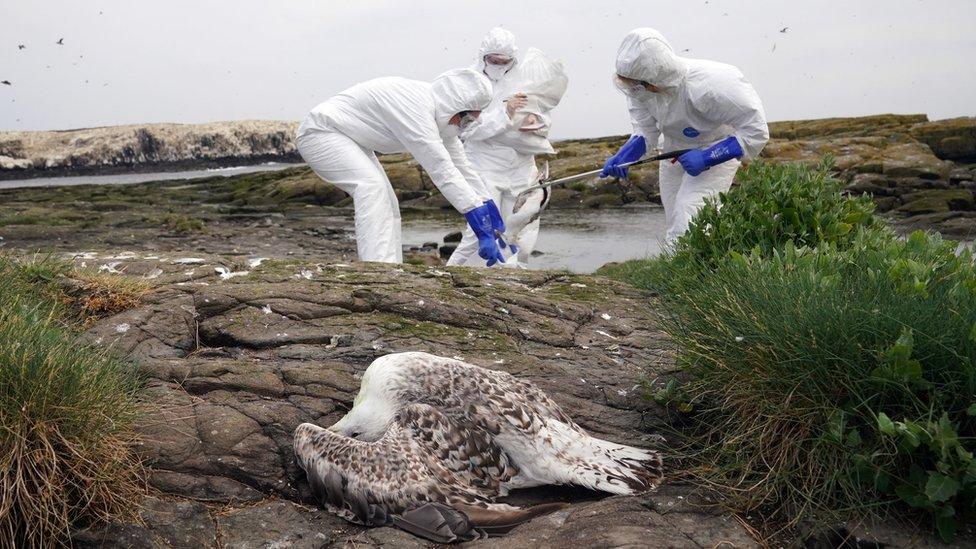
- Published25 July 2022
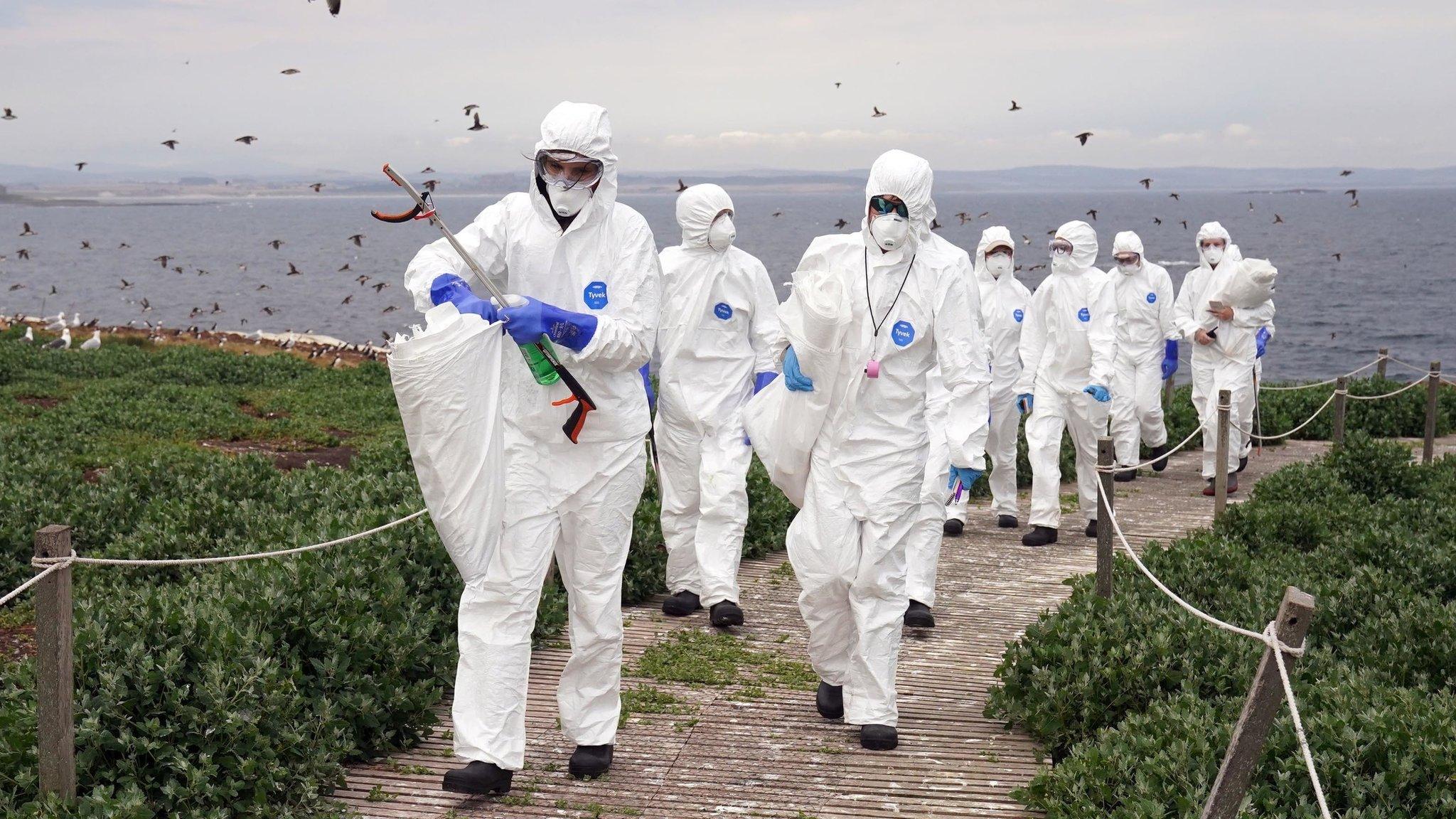
- Published1 July 2022
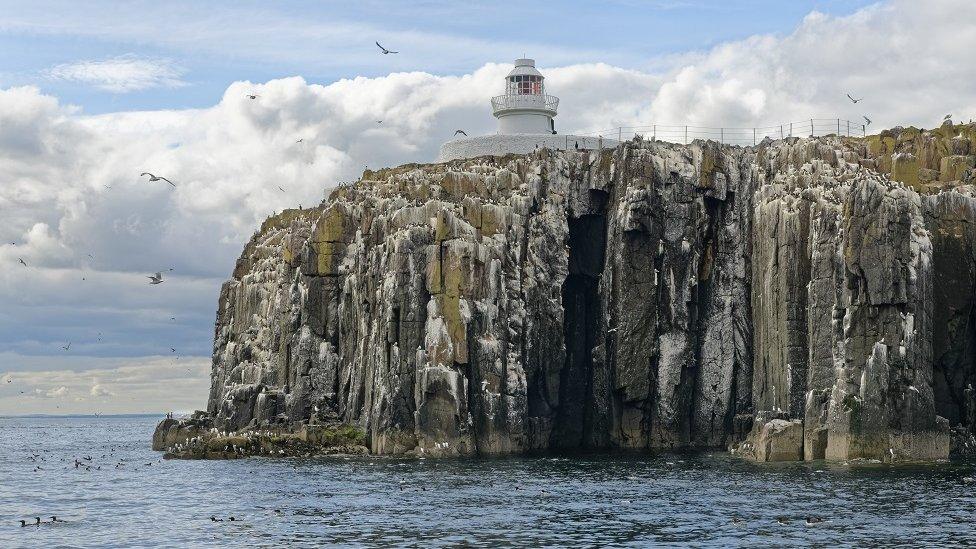
- Published18 June 2024
